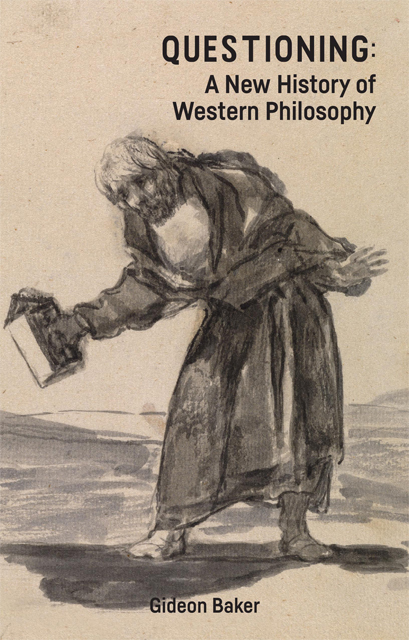5 - Epicurus
Published online by Cambridge University Press: 14 July 2023
Summary
EVEN IN ANTIQUITY, EPICUREAN was a word with a pejorative sense, meaning one who thoughtlessly devotes his or her life to the pursuit of pleasure. Can Epicurus (341–270 BCE), the founder of that ‘plebeian philosophy’ as Cicero called it (Tusculan Disputations 1.55; Cicero 1985), who did indeed teach that nothing is higher than the absence of pain, tell us anything about questioning? Ataraxia, or freedom from disturbance, doesn’t sound like a state of mind fit for posing questions. And if the Epicurean ideal is to live, as Epicurus did, in his garden, quietly and among friends, what need to question anything anyway?
Yet this Epicurean idyll was not arrived at passively. Epicurus achieved it only by finding an affirmative answer to the following question: can we live free from fear? Free, in particular, from that terrible fear of death which, in Epicurus’s view, is hidden at the heart of all lesser fears and which drives us to the mad acts of violence, greed and ambition that disfigure our world.
While philosophy is not reducible to exemplary lives, for his own part Epicurus seems to have practised what he preached and to have accepted his end with calm repose. Despite a slow and painful death from kidney stones, he was nonetheless able to write to a friend:
On this blissful day, which is also the last of my life, I write this to you. My continual struggle from strangury [the inability to urinate] and dysentery are so great that nothing could augment them; but over against them all I set gladness of mind at the remembrance of our past conversations. (‘Letter to Idomeneus’ in Diogenes Laertius, Lives 10.22)
Epicurus lived in a time when people looked anxiously at the sky. The heavenly bodies – the sun, moon and stars – were seen as models of good order and eternity (these two principles being nearly identical in Greek mind). And yet the heavens were a source of terror, too, the place of unexpected and unwelcome comets, auguries of terrible events, and the home of the king of the gods, who hurls thunderbolts onto the earth.
Nor was there much comfort to be had from the earth. Beneath it lay the underworld, where the dead could expect to be punished at length for any impieties.
- Type
- Chapter
- Information
- QuestioningA New History of Western Philosophy, pp. 53 - 62Publisher: Edinburgh University PressPrint publication year: 2022



